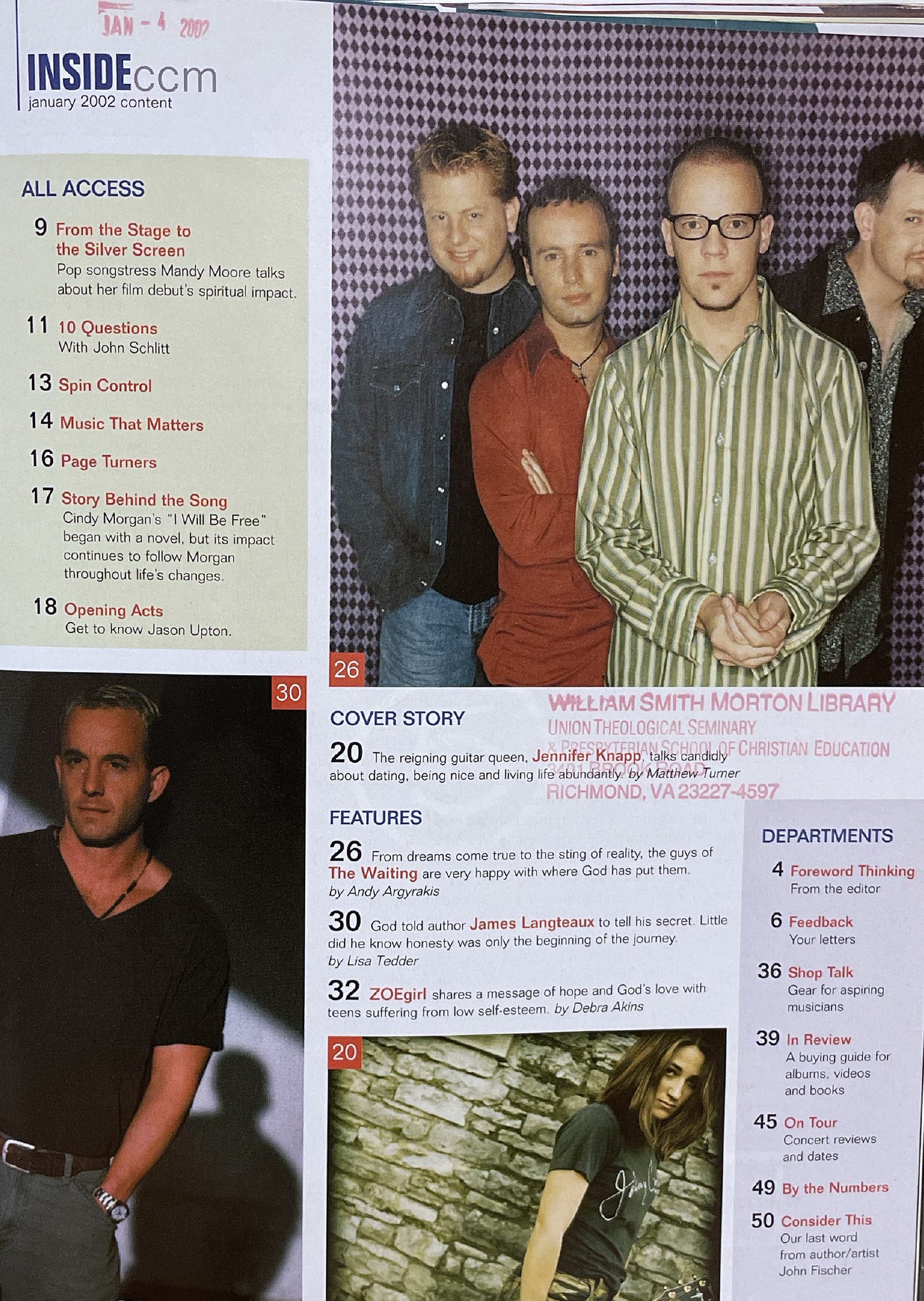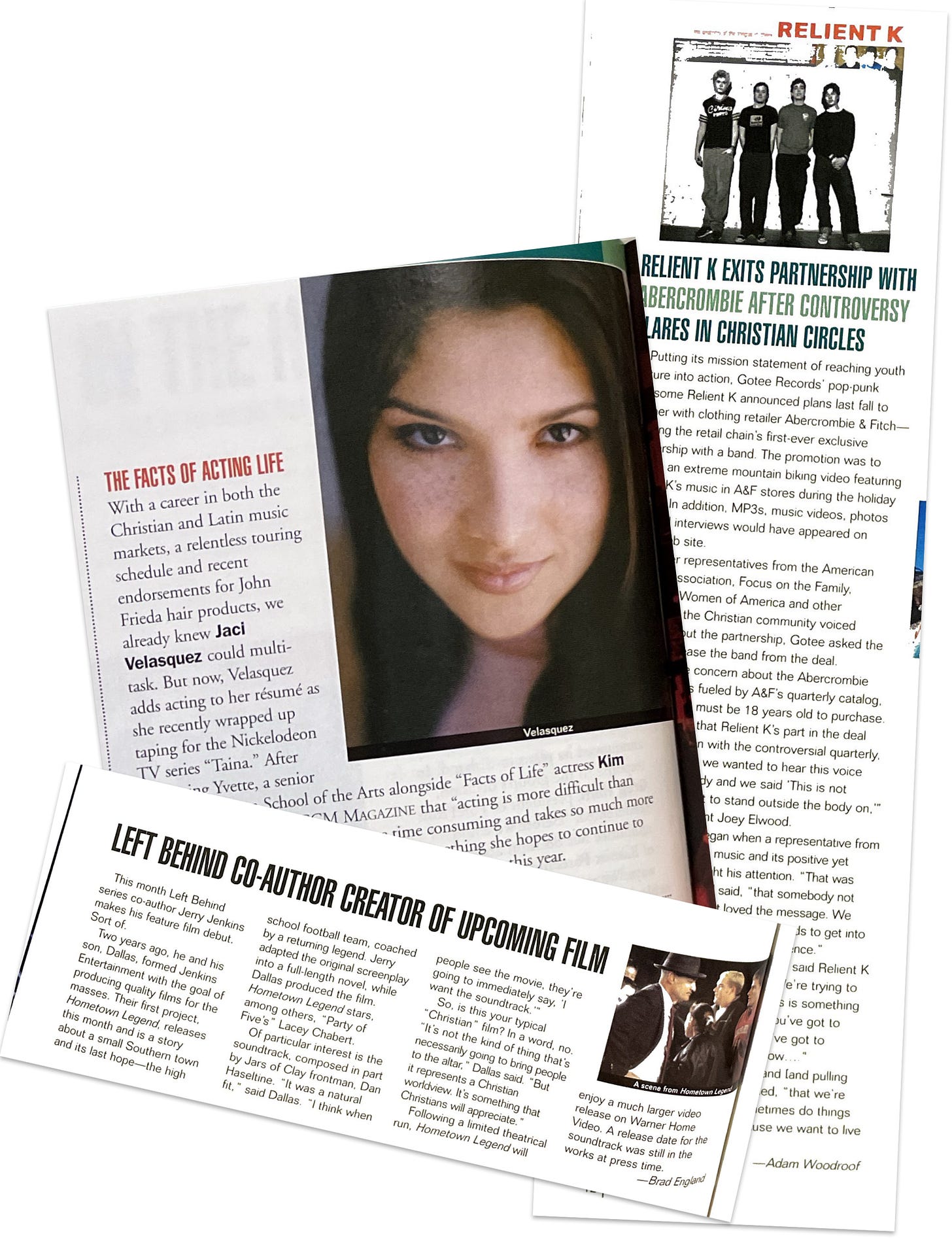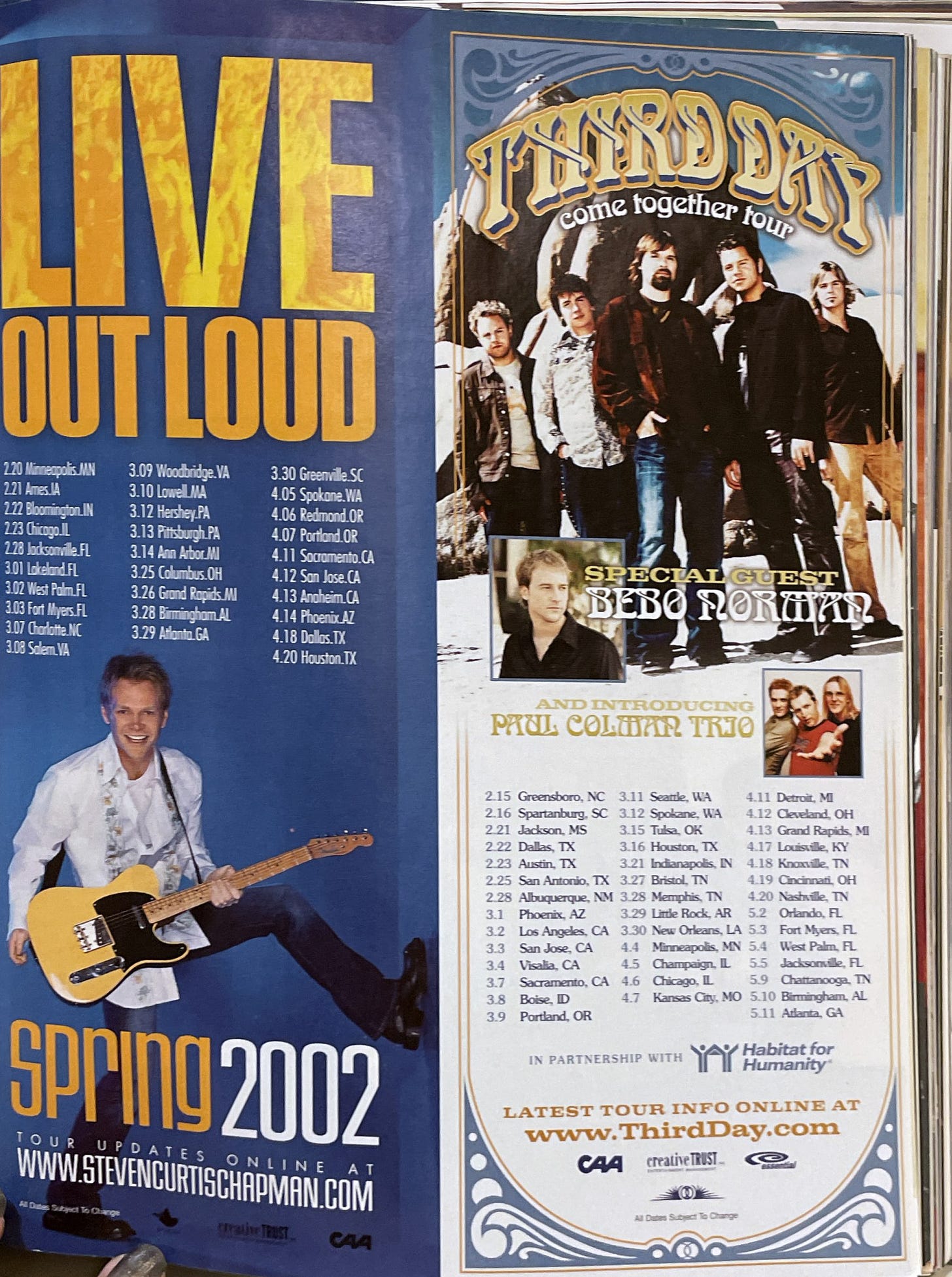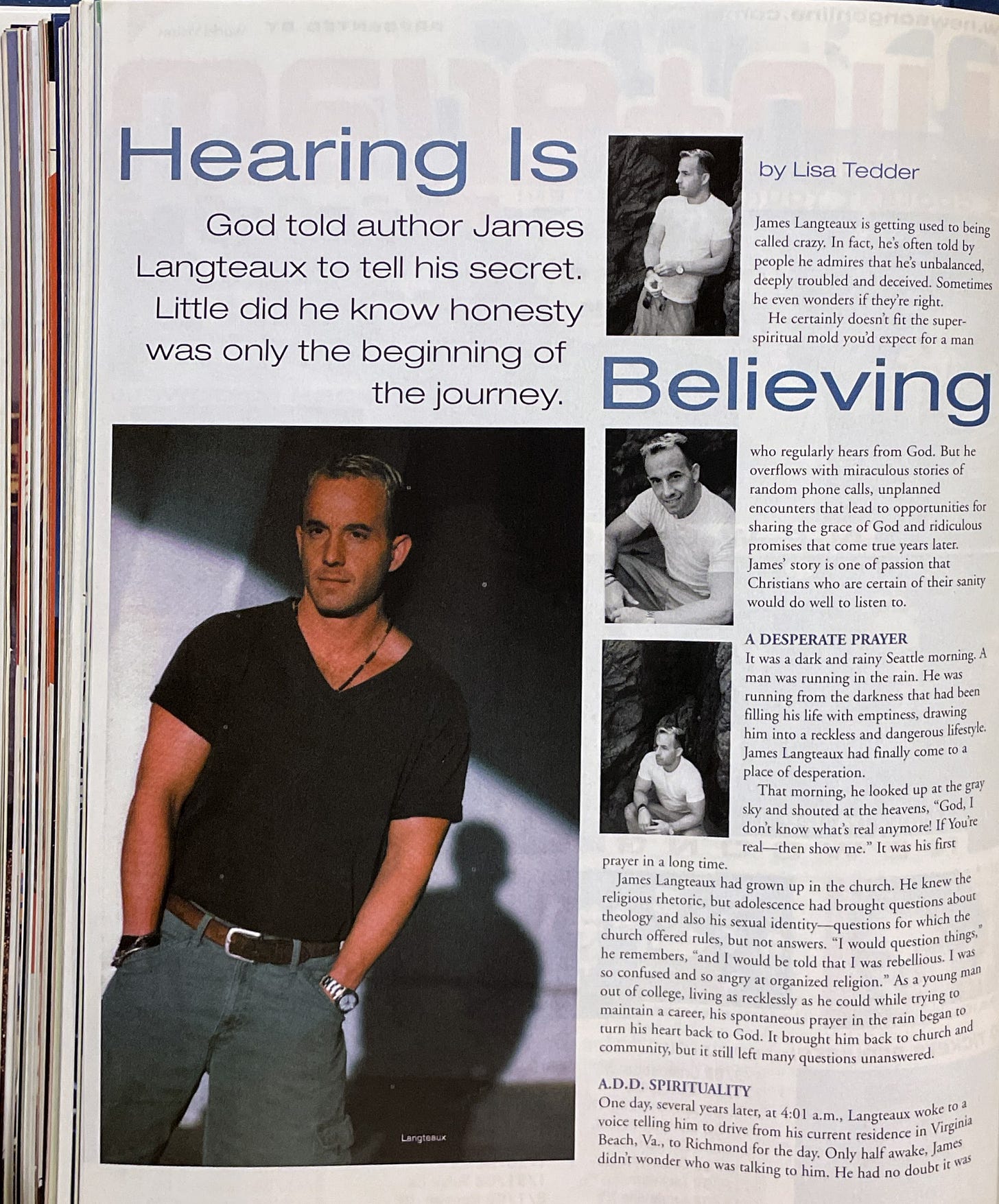January 2002
Happy New Year! This issue rings in 2002 still thinking about September 11th. In the cover story with Jennifer Knapp, she is asked where she was when it happened and if it will change how she approaches music. It also covers Mandy Moore in A Walk To Remember, and a few small pieces about other musicians. But this issue also lays bare what evangelicals thought about homosexuality, and its easy to see the damage it did and does. The editor for this issue is Matthew Paul Turner, and if you’ve followed him at all over the past couple of years, you know that the issue is also personal to him. The church has done a lot of damage in a lot of ways, but one hopeful thing for this new year is a reminder that these exclusionary beliefs didn’t get the last word, and didn’t steal all of the joy.
In January 2002, not much was going on, actually! The Euro becomes legal tender in 12 EU countries, No Child Left Behind was signed into law, A Beautiful Mind won at the Golden Globes, and Pierre Bourdieu died.
CCM Magazine kept the majority of their staff relatively young, so that their interviews came from people who were naturally listening to the music, avoiding the old white man asking what kids these days are into. One of the consequences of this is that there is a pretty constant turnover in who the editor is. What I find interesting in this letter from the editor is that despite coming from a new person (MPT started in Nov 01), it serves as a culmination of the hopes and desires of the magazine throughout so much of the 90s. “The term God is no longer a dirty word in our society,” and patriotism and good feelings about the government are in style again; things the writers and artists talked about a lot in the 90s. These thoughts obviously weren’t unique to CCM, but the feelings that white evangelicals at large had are so often mirrored in the pages of the magazine.
The other, more important thing that this editorial shows is a continuing change in attitude that really starts showing up in the magazine in 1999, running parallel to the rise in worship music (which, contrary to the story the industry tells about itself, happened well before 9-11). For so much of the 1990s, a strong thread throughout the magazine was about impacting and changing the culture – about taking God forcefully to the people. But there is a switch that happens, for reasons I’m still puzzling through, and the attitude that is articulated more and more is that people are looking for spiritual answers, and if they see how ‘we’ are living, they will come to us. The parts of this editorial about relevance flow right along with that idea. Living a life of love, showing how Jesus is relevant in this moment, and “being a witness” is a much more passive way of being a Christian in the world that is really such a contrast to what was said in earlier years.
From a Letter to the Editor…
“Just thought I would drop you a note on your article in the November issue, ‘Making the Sell.’ This, combined with the article you ran earlier this year on Third Day's video, Offerings, makes me wonder if the people in our industry have forgotten what we are about. Are we here to honor God and provide a gateway through music to reach the masses? Or are we here just to make a buck? Has the industry become that jaded that it sees Christian bookshops as anything but a place to push product? Or is it that production costs are lower, and you don’t have to give discounts to make it work when it's only on the Web? Why do Christian record labels give volume discounts to companies that willingly mock God, while reducing the discounts they give to stores that can't carry the volume, but are built to honor the Lord? It was nice to see Third Day take stock as a band. I pray our industry does the same.”
Jennifer Knapp
This story with Jennifer Knapp is about her second album, The Way I Am. It’s about how she has changed since her first album, what it’s like to be one of the few female Christian artists still performing to large crowds, and in a retrospectively interesting bit, questions about I Kissed Dating Goodbye and if she was dating anyone and thoughts on having a family someday. In this article she also talks about how stressful the constant touring while recording an album is. By the time she gives this interview, she had already decided that she was going to take time off once her contractual obligations were fulfilled, which she does in September 2002. In 2010, she came back to music, and gave a really nice interview with Christianity Today about coming back to music, as well as being in a long-term relationship with a woman. And finally, I haven’t read it yet, but she also released a memoir a few years ago.
I’m sure it’s a coincidence, but the ad on the page next to her interview is for an SCC tour that says Live Out Loud, and it’s really nice that she is finally able to do that.
(The magazine gets sold to Salem Communications in 1999, and the founder/publisher John Styll retires in 2001, because Salem wanted to take the magazine in a different direction. The magazine does pivot to including more than music, which is why this article on a book probably occurs.)
Later in the magazine, there is an article with a writer, James Langteaux, who wrote a book about praying and talking to God on a personal level. There were probably many books that were coming out that could have been covered in the magazine, so the fact that it was this book also seems interesting…
Because as the article continues, it becomes clear that Langteau was gay, and the book ends up being also about how he struggled with being gay, walking away from a man he loved, in order to please God because it was a sin. The article describes how much rejoicing there was over his decision. He would go on to work for the 700 Club, but in 2012 he also came out and wrote a book about being gay – and not a Christian anymore.
A look at the top charts…
And then finally, in 2015, Jennifer Knapp gave a really great Ted Talk about her journey.











